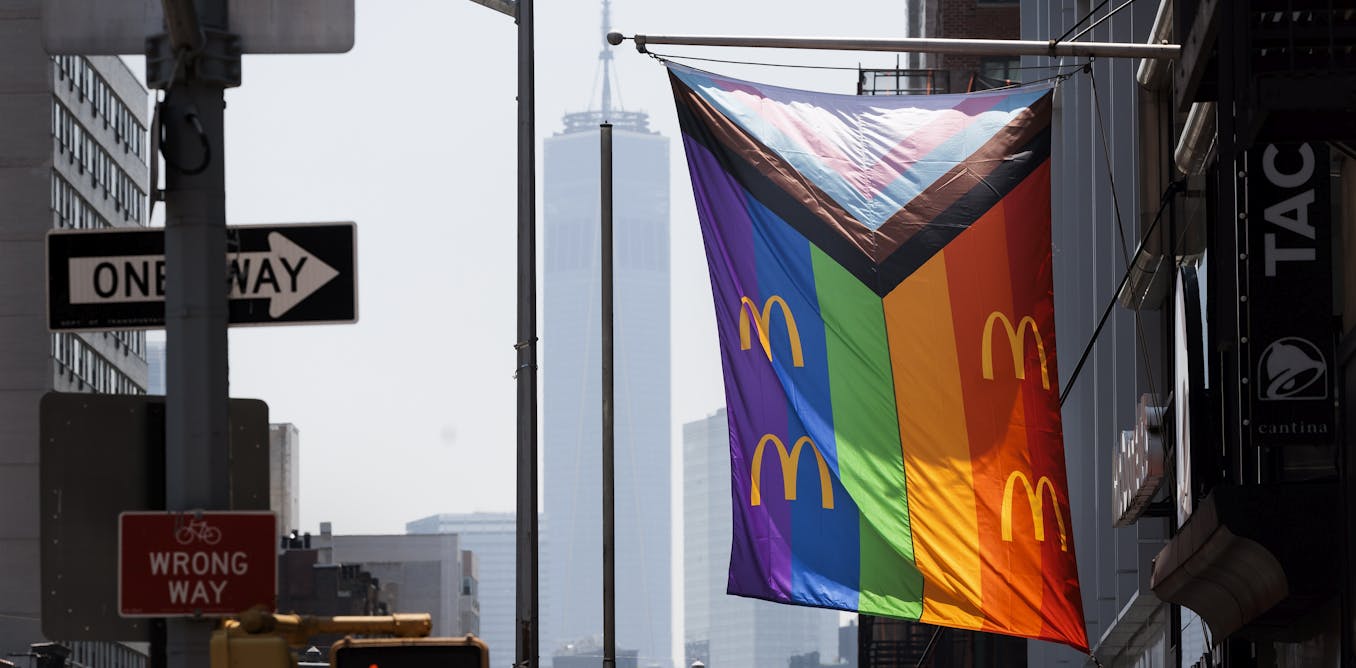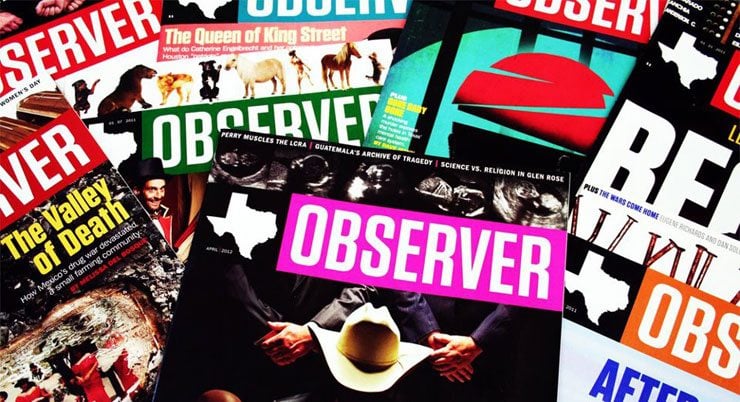
- Select a language for the TTS:
- UK English Female
- UK English Male
- US English Female
- US English Male
- Australian Female
- Australian Male
- Language selected: (auto detect) - EN
Play all audios:
“Corporate virtue signalling” is a phrase of our time. Bud Light was accused of it when it hired TikTok personality and trans woman Dylan Mulvaney to promote low-cal beer. Disney was
labelled a virtue signaller for its opposition to the US state of Florida outlawing discussions of gender fluidity and sexual orientation in schools. When multi-trillion-dollar investment
company Black Rock promoted environmental, social and governance (ESG) standards, it too was branded a virtue-signaller. These are only a few of the many high-profile examples of
corporations who have made headlines for publicly supporting progressive social and environmental political positions. ------------------------- _Review: Virtue Capitalists: The Rise and
Fall of the Professional Class in the Anglophone World – Hannah Forsyth (Cambridge University Press)_ ------------------------- The loudest critics of virtue signalling come from the more
vocal end of right-wing politics. Many conservative pundits angrily denounce the “woke” for failing to follow what they see as the real purpose of capitalism. “Go woke, go broke,” they vent,
insisting there is no place in the competitive world of market rivalry for taking sides on social and political issues. Anti-woke critics want to make corporations great again: let’s get
back to the old days, where making profits was the only thing harried managers had to worry about! Wheeling out Milton Friedman’s hackneyed 1970 dictum, they censure today’s managers for
failing to meet “the social responsibility of business […] to increase its profits”. If you buy into this rhetoric you might believe that, prior to the 2020s, business leaders were
unencumbered by ethical or political concerns. The problem is the anti-woke mob are nostalgic for a past that never existed. This is borne out in the pages of Hannah Forsyth’s history Virtue
Capitalists: The Rise and Fall of the Professional Class in the Anglophone World, 1870-2008. “Woke capitalism” was first called out by conservative columnist Ross Douthat, who coined the
phrase in the New York Times in 2018 – a decade after the period Forsyth spans in her book. But what she uncovers, with all the specificity and detail to be expected from a historian, is a
story of “virtue capitalism” that existed long before the concept of “wokeness” became a political weapon of the recalcitrant right. In one sense, Forsyth’s book will interest those who want
to know more about the history of capitalism and the mixed fortunes of the professional and managerial classes. In another very important sense, it provides the material for something akin
to what French philosopher Michel Foucault once called “a history of the present”: it helps us understand our present situation by tracing its genealogy in the past.
------------------------- _ READ MORE: EXPLAINER: THE IDEAS OF FOUCAULT _ ------------------------- Forsyth shows that, contrary to the imaginings of anti-woke crusaders, capitalism has
always had a relationship with virtue, and a troubled one at that. This goes back to the very beginning of modern industrial capitalism, well before “virtue signalling” became a catch cry
for those yearning for an illusory version of a purely economic capitalism. THE LONG 20TH CENTURY Forsyth covers the “long 20th century”. Her book starts in 1870, when the establishment of
the gold standard marked the birth of modern capitalism, and the ascendancy of the professional class. It ends in 2008, just before the global financial crisis exposed the world’s
vulnerability to capitalist excess. The book focuses on the professional classes in Anglophone settler colonies: Australia, Canada, New Zealand and the United States, in particular. In these
countries, the process of supposed civilisation was married to economic domination and colonisation, administered by a new professional class of white-collar workers. With the growth of the
new class of professional workers, Forsyth argues, morality became entwined with capitalism. The moral virtues that emerged centred on the value of education and a belief in meritocracy,
bolstered by precision, integrity, discipline and efficiency. For workers like nurses, journalists and accountants, professionalism became associated with moral standing, which translated
into economic value. ------------------------- _ READ MORE: GLOBAL CORPORATE POWER IS 'OUT OF CONTROL', BUT REPORTS OF DEMOCRACY’S DEATH ARE GREATLY EXAGGERATED _
------------------------- But the Anglophone colonial world and its capitalist economies were, as Forsyth observes, “founded on violent dispossession, where land theft in the settler
colonies was the precondition to property ownership”. The so-called morality of the virtue capitalists was used to justify colonialism’s brutal acquisition and racial oppression.
Professional integrity and virtue may have given colonialism a sense of respectability, but it reflected a moral system that at best regarded Indigenous populations as the benefactors of
Western civilisation and assimilation in Western culture. At worst they were seen as impending the natural course of progress, and hence dispensible. The result was the displacement of the
Indigenous moral systems that came before the colonisers. White virtue, cultural domination and capital expansion were inseparable companions. Forsyth portrays professional virtue not so
much as a self-serving hypocrisy, but as a culturally narcissistic form of self-deception that masked the brutality of colonial self-interest. Indigenous populations were castigated as
“savage” and in need of education. White moral authority was established as the colonial order, and it was all proper. By the end of the second world war, the virtue capitalists reached
their peak power. They designed a new world economic order rooted in their own sense of righteousness. The New Deal was established in the United States, focusing on relief for the needy,
economic recovery and financial reform. The “welfare state” was established elsewhere. Education and health were provided to the masses, protecting capitalism from the threat of communist
revolutions. Away from home, virtue translated into international development that was intent on “civilising” and “developing” the once-colonial world in the image of the professional
classes. ------------------------- _ READ MORE: 'GREED IS AMORAL': HOW WALL STREET SUPERMEN CASHED IN ON PANDEMIC MISERY AND CHAOS _ ------------------------- AN ECONOMIC AND MORAL
CRISIS The mid-1970s ushered in an economic and moral crisis. Forsyth argues this triggered the downfall of the professional virtue capitalists after a century on the rise. By the 1980s, a
new wave of managerialism was sweeping the business world. Economic management became increasingly divorced from the professions. In the heyday of early neoliberalism, the conservative
professional was displaced in favour of a prototypical manager who was showy, entrepreneurial and hypermasculine. The new focus was on financial and economic success, rather than
professional morality. Success at all costs was the neoliberal mantra. A globalising world economy became ripe for new forms of exploitation and Western wealth accumulation. A new elite
discarded the old professional virtues as quaint, starchy and old-fashioned. Forsyth characterises this as “moral deskilling”. The market became the solution to all problems. Virtue
Capitalists ends with the managerial class having reached a crescendo of power, as masters of a new world order where “success is the only virtue”. The book leaves us in a world where
traditional professional virtues have been all but dismantled and professional expertise has been discredited in favour of can-do capitalism. There is no happy ending. With the rise of the
managerial class came a new political populism characterised by a distrust of professional expertise, and professed hatred of “the elites”. Think, for example, of anti-vaccination campaigns
undermining medical expertise, or climate denialists flouting the findings of climate scientists. “Virtue was, and is, used for power,” writes Forsyth. That power was deployed in the long
20th century, initially to justify colonial exploitation, then to further ransack the world as it opened up to global trade. Virtue, by this account, is a cloak of respectability that hides
the realities of a global economy geared to produce inequality. Perhaps it hides them so well, even the professional workers crunching the gears cannot see them. Virtue Capitalists is not
without fault. At times, the narrative is disjointed, the argument lacks consistency and ideas are presented without being developed. The references to theorists and theories can, at times,
appear superficial and unnecessary. But the strength of the work overcomes these faults. It provides us with a historical account of the tight connections between morality and economics that
popular narratives have ignored. Like the virtue capitalism of the past, today’s “woke” capitalism is an act of power, as much as it is an ethical movement. Where would capitalist
legitimacy be if, in the wake of the global financial crisis, the 1980s entrepreneurial “success at all costs” attitude returned unvarnished? Surely capitalism’s legitimacy would have come
to an end, at last. While no such end was reached, there was no change to the inequality driving core of capitalism either – it was just woke-washed. The morality of today’s woke
corporations serves to re-legitimise capitalism, while leaving its exploitative nature unaltered. History repeats. Virtue is still a way to increase profits. This will not make the world
great again. It will keep us on the same trajectory of inequality and exploitation. History’s lessons are worth learning, so we might imagine a better future. Forsyth’s book provides a
valuable means to do that.







